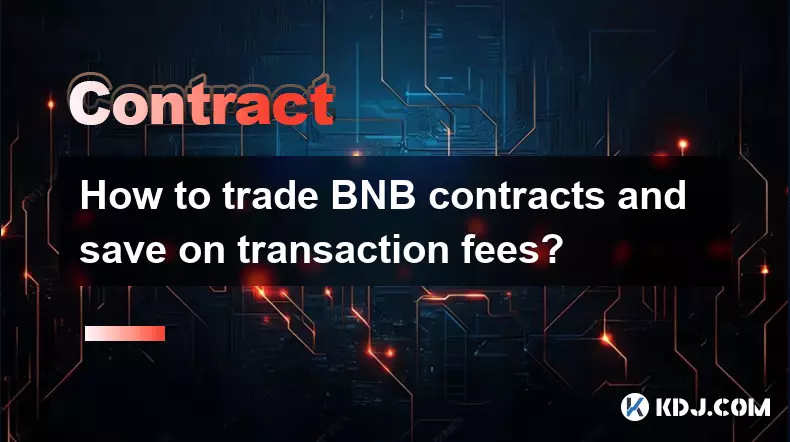-
 bitcoin
bitcoin $87959.907984 USD
1.34% -
 ethereum
ethereum $2920.497338 USD
3.04% -
 tether
tether $0.999775 USD
0.00% -
 xrp
xrp $2.237324 USD
8.12% -
 bnb
bnb $860.243768 USD
0.90% -
 solana
solana $138.089498 USD
5.43% -
 usd-coin
usd-coin $0.999807 USD
0.01% -
 tron
tron $0.272801 USD
-1.53% -
 dogecoin
dogecoin $0.150904 USD
2.96% -
 cardano
cardano $0.421635 USD
1.97% -
 hyperliquid
hyperliquid $32.152445 USD
2.23% -
 bitcoin-cash
bitcoin-cash $533.301069 USD
-1.94% -
 chainlink
chainlink $12.953417 USD
2.68% -
 unus-sed-leo
unus-sed-leo $9.535951 USD
0.73% -
 zcash
zcash $521.483386 USD
-2.87%
Bitcoin contract operation process
Bitcoin contracts enable trustless and automated agreements on the Bitcoin network, enforcing contractual terms without intermediaries and providing advantages such as transparency and immutability.
Nov 11, 2024 at 10:48 pm

Bitcoin Contract Operation Process
Bitcoin is a decentralized digital currency, without a central bank or single administrator, that can be sent from user to user on the peer-to-peer bitcoin network without the need for intermediaries. Transactions are verified by network nodes through cryptography and recorded in a public distributed ledger called a blockchain. This blockchain serves as an open, verifiable record of all transactions, making Bitcoin a transparent and auditable system.
Bitcoin contracts are smart contracts that facilitate agreements between parties on the Bitcoin network. They enable the creation of trustless and automated agreements, enforcing the terms of the contract without the need for intermediaries or external enforcement mechanisms.
The operation of Bitcoin contracts involves several key steps:
1. Contract Creation
Bitcoin contracts are created using a scripting language that allows for the definition of conditions and actions to be executed when specific criteria are met. This scripting language is embedded within Bitcoin transactions, enabling the creation of contracts that can execute complex operations automatically.
2. Contract Deployment
Once created, Bitcoin contracts are deployed on the Bitcoin network by broadcasting the transaction containing the contract to all network nodes. The network verifies the transaction and adds it to the blockchain, making the contract publicly available and immutable.
3. Contract Execution
When the conditions defined in the Bitcoin contract are met, the contract is executed automatically by network nodes. This execution involves the transfer of funds or assets between the parties to the contract, as specified in the contract's terms.
4. Contract Monitoring
Bitcoin contracts can be monitored by parties involved in the agreement or by third-party services. Monitoring ensures that the contract is executing as expected and that the terms of the agreement are being fulfilled.
5. Contract Termination
Bitcoin contracts can be terminated when the conditions for termination are met or when both parties agree to dissolve the contract. The termination process involves broadcasting a transaction that invalidates the contract, effectively ending its execution.
6. Dispute Resolution
In the event of a dispute arising from a Bitcoin contract, the parties involved can attempt to resolve the issue through negotiation or mediation. If a resolution cannot be reached, the dispute may be escalated to a third-party arbitration service or a court of law.
Bitcoin contracts offer several advantages over traditional contracts:
- Trustless: Bitcoin contracts eliminate the need for trust between parties, as the terms of the contract are enforced automatically by the network.
- Transparency: Bitcoin contracts are publicly available on the blockchain, providing transparency and accountability for the parties involved.
- Immutability: Once deployed on the blockchain, Bitcoin contracts cannot be altered or tampered with, ensuring the integrity of the agreement.
- Automation: Bitcoin contracts automate the execution of contractual obligations, reducing the need for manual intervention and increasing efficiency.
- Security: Bitcoin contracts are secured by the underlying Bitcoin network, which provides a high level of protection against fraud and unauthorized access.
Overall, Bitcoin contracts represent a significant advancement in contract management, offering increased trust, transparency, and automation for agreements on the Bitcoin network. These contracts have the potential to revolutionize the way agreements are created, executed, and enforced in various industries and applications.
Disclaimer:info@kdj.com
The information provided is not trading advice. kdj.com does not assume any responsibility for any investments made based on the information provided in this article. Cryptocurrencies are highly volatile and it is highly recommended that you invest with caution after thorough research!
If you believe that the content used on this website infringes your copyright, please contact us immediately (info@kdj.com) and we will delete it promptly.
- MYX Rallies Amidst Market Weakness, But Concerns Remain for Sustained Momentum
- 2026-02-03 06:55:02
- Kaspa's $0.03 Brink: One Analyst Bets $100,000 on Fundamentals, Or Bust
- 2026-02-03 07:00:01
- Sleep Token Drummer II Dominates Drumeo Awards Amidst Grammy Nod and Album Success
- 2026-02-03 07:40:02
- Trevi Fountain's New Reality: More Than Just a Coin Toss for Visiting Costs
- 2026-02-03 08:20:01
- UAE Unleashes AE Coin: A New Era for Government Payments with Stablecoin Power
- 2026-02-03 08:15:02
- BetOnline Bets Big on $SCOR Crypto Token for Super Bowl LX, Changing the Game for Fan Engagement
- 2026-02-03 08:10:01
Related knowledge

How to close a crypto contract position manually or automatically?
Feb 01,2026 at 11:19pm
Manual Position Closure Process1. Log into the trading platform where the contract is active and navigate to the 'Positions' or 'Open Orders' tab. 2. ...

How to understand the impact of Bitcoin ETFs on crypto contracts?
Feb 01,2026 at 04:19pm
Bitcoin ETFs and Market Liquidity1. Bitcoin ETFs introduce institutional capital directly into the spot market, increasing order book depth and reduci...

How to trade DeFi contracts during the current liquidity surge?
Feb 01,2026 at 07:00am
Understanding Liquidity Dynamics in DeFi Protocols1. Liquidity surges in DeFi are often triggered by coordinated capital inflows from yield farming in...

How to use social trading to copy crypto contract experts?
Feb 02,2026 at 07:40am
Understanding Social Trading Platforms1. Social trading platforms integrate real-time market data with user interaction features, enabling traders to ...

How to trade BNB contracts and save on transaction fees?
Feb 03,2026 at 12:39am
Understanding BNB Contract Trading Mechanics1. BNB contracts are derivative instruments traded on Binance Futures, allowing users to gain leveraged ex...

How to build a consistent crypto contract trading plan for 2026?
Feb 02,2026 at 10:59pm
Defining Contract Specifications1. Selecting the underlying asset requires evaluating liquidity depth, historical volatility, and exchange support acr...

How to close a crypto contract position manually or automatically?
Feb 01,2026 at 11:19pm
Manual Position Closure Process1. Log into the trading platform where the contract is active and navigate to the 'Positions' or 'Open Orders' tab. 2. ...

How to understand the impact of Bitcoin ETFs on crypto contracts?
Feb 01,2026 at 04:19pm
Bitcoin ETFs and Market Liquidity1. Bitcoin ETFs introduce institutional capital directly into the spot market, increasing order book depth and reduci...

How to trade DeFi contracts during the current liquidity surge?
Feb 01,2026 at 07:00am
Understanding Liquidity Dynamics in DeFi Protocols1. Liquidity surges in DeFi are often triggered by coordinated capital inflows from yield farming in...

How to use social trading to copy crypto contract experts?
Feb 02,2026 at 07:40am
Understanding Social Trading Platforms1. Social trading platforms integrate real-time market data with user interaction features, enabling traders to ...

How to trade BNB contracts and save on transaction fees?
Feb 03,2026 at 12:39am
Understanding BNB Contract Trading Mechanics1. BNB contracts are derivative instruments traded on Binance Futures, allowing users to gain leveraged ex...

How to build a consistent crypto contract trading plan for 2026?
Feb 02,2026 at 10:59pm
Defining Contract Specifications1. Selecting the underlying asset requires evaluating liquidity depth, historical volatility, and exchange support acr...
See all articles










































































